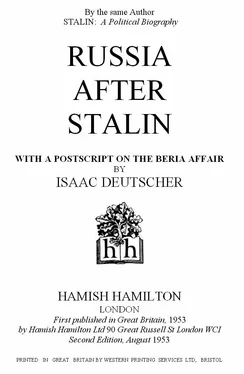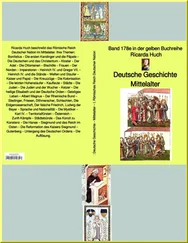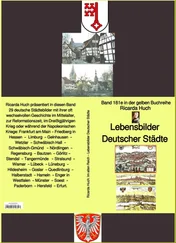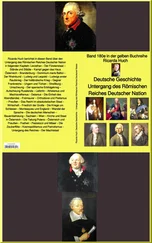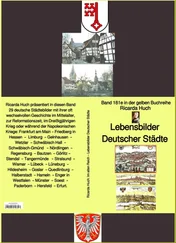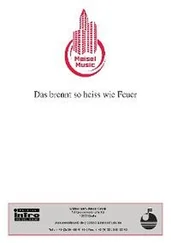Stalin was fitted for his role not merely and not even primarily by his great talents for organization and tactics. His background, his experience, and his cast of mind had prepared him to lead Bolshevism in the break with its democratic origins and through the decades of its isolation and selfisolation. For the ‘function’ of such a leadership he was the most perfect ‘organ’.
He had spent all his years inside Russia, mostly in his native Caucasus on the borders of Europe and Asia, where he had been insulated from the direct influences of Western European Marxism. This was his weakness during the Leninist period, when Bolshevism was staking its future on revolution in the West. But this was also the source of his extraordinary strength when the revolution was withdrawing into its national shell. He, who had hardly ever looked beyond that shell, found little or no difficulty in divorcing Bolshevism from the Western Marxist outlook.
His rivals had, like Lenin, lived as emigres in Germany, France, and other European countries. There, for many years, they listened with enthusiasm to the great seeches of Jaures and Bebel, the pioneers and prophets of French and German socialism. They absorbed the teachings of Kautsky and Guesde, the leading expounders of Marxism. They viewed with admiration and envy the scores of great socialist newspapers and journals, which were openly published and read by the million, while the Russian revolutionaries could bring out only a few small clandestine sheets, which they smuggled into Russia with much difficulty and great danger to themselves. They watched with rapture the parliamentary strength, and the political and educational institutions, of Western Marxism, the massive trade unions, the ‘powerful’ and openly conducted strikes, the May Day demonstrations, etc., etc. They were held spellbound by the ‘might’ of European Marxism.
Then came the great collapse of 1914, when, despite all the previous professions of anti-militarism and internationalism, the power of the Western parties was harnessed to the war machines of the belligerent governments. But the Russian emigres still believed that the inherent ‘class consciousness’ and power of the Western proletariat would overcome this ‘betrayal’ and its consequences. They found it hard to shed this belief even some years after they had themselves become Russia's rulers.
Stalin had known none of their enthusiasms and none of their illusions. He had never sat at the feet of Jaures, Bebel, Kautsky, and Guesde. He had never had any first-hand impression of the apparent might of the Marxist movement in the West. Even during the Leninist era when he too expressed hope for the spread of the revolution, he was merely adopting what was then the conventional Bolshevik idiom. When that hope was shattered, his inward balance was not upset. Unlike many old Bolsheviks, he did not feel that the Russian revolution and its makers were now suspended over an abyss. Even as early as the beginning of 1918 he had expressed icy scepticism about the revolutionary movements of the West, and brought upon his head a rebuke from Lenin. Paradoxically, Stalin's ignorance of the West led him to a more realistic appreciation of its revolutionary potentialities than that which other Bolshevik leaders, including Lenin, had reached after many years of first-hand observation and study.
The democratic orientation of the early Bolshevik leaders was also up to a point bound up with the Western Marxist tradition. Under the Tsar Bolshevism could exist and work only underground. Any underground movement, if it is to be effective, must be led in a more or less authoritarian manner. It must be strictly disciplined, hierarchically organized, and centrally controlled. Nearly all Russian revolutionary movements (and all the Resistance movements in Nazi-occupied Europe of 1940-5 as well) were characterized by such features. The chiefs of any clandestine party must exalt the idea of strict discipline and strong leadership on which survival of such a party largely depends. In his time Lenin exalted the principle of strong leadership with all the emphasis and over-emphasis peculiar to him.
Yet even the underground Bolshevik organization of Tsarist days was by no means the monolithic body the Stalinist legend depicted.
The Bolshevik emigres had before their eyes the example of the Western labour organizations, in which free debate flourished and democratic procedures were strictly observed, even if in fact most of those organizations too were effectively controlled by centralized and self-willed caucuses. The Bolshevik emissary who, on a false passport, travelled between Western Europe and Russia, was often torn between the democratic outlook of the Western parties and the clandestine authoritarianism of his own movement. He dreamt of the day when his party too would emerge into the open, freely debate its affairs, adopt democratic procedures, and freely elect its leaders. Whenever the Bolshevik Party did emerge into the open, if only for a short spell as in 1905, Lenin did indeed infuse democracy into it. And from 1917 to 1920 inner party democracy flourished in Bolshevik ranks.
Stalin's political outlook had been formed exclusively by clandestine Bolshevism. He had been one of those disciplinarian committee-men who had jealously guarded the Bolshevik organization from infiltration by alien elements and agents provocateurs. In a clandestine organization the rank and file could not freely elect their leaders — often they could not even be allowed to know who the leaders were. The committee-man not unnaturally sensed in any attempt at democratization the threat of disruption and the danger of exposure to the political police.
This outlook of the old underground leader remained with Stalin throughout his lifetime. He regarded, as he himself said later, the turbulent, open debates in which the party indulged between 1917 and 1920 as a waste of time and a drain on the party's efficiency and striking power. Of course, he too had to speak occasionally, in deference to precept, about the need for inner-party democracy. But he never even began to realize that genuine freedom of criticism and the open clash of opinion might be a creative ferment keeping a party mentally alive and vigorous.
Having risen to power, he carried the habits of clandestine Bolshevism to a grotesque extreme, and transplanted them into the Soviet State and into the life of a whole nation, in which, anyhow, all democratic impulses had become atrophied.
Finally, Stalin was as if predestined to become the chief mouthpiece of Bolshevism when it was absorbing the Russian ‘way of life’ and the sombre heritage of the Tsarist past. In that heritage the Greek Orthodoxy was a dominant element. Stalin had imbibed it in his youth. True, many a Russian revolutionary received his education in an Orthodox Seminary, especially in the Caucasus. Nor need a revolutionary trained in his youth to be a priest preserve the theological cast of mind for the rest of his life. But Stalin did preserve it in an extraordinary degree.
Before he imposed the Greek Orthodox style and manner upon the Bolshevik Party, that style and manner had in his own mind imposed themselves upon his Marxism and atheism. He presented the Marxist and Leninist formulae in the accent, the intonation, and sometimes even the idiom of Greek Orthodoxy, which made those formulae sound less alien to the ‘backward’ Russian masses. Indeed, he made Bolshevism appear as something like a new emanation of the old and indefinable spirit of the Church, long before he rehabilitated the Church itself for reasons of expediency.
It is enough, for instance, to read Stalin's famous oath of fealty to Lenin, that strange litany which he intoned after Lenin's death and in which he began every invocation with the refrain ‘We swear to Thee, Comrade Lenin’, to feel with almost physical immediacy the expupil of the monks, trained in the delivery of sermons and funeral orations, emerging in the disciple of Lenin and overtopping the Marxist.
Читать дальше
